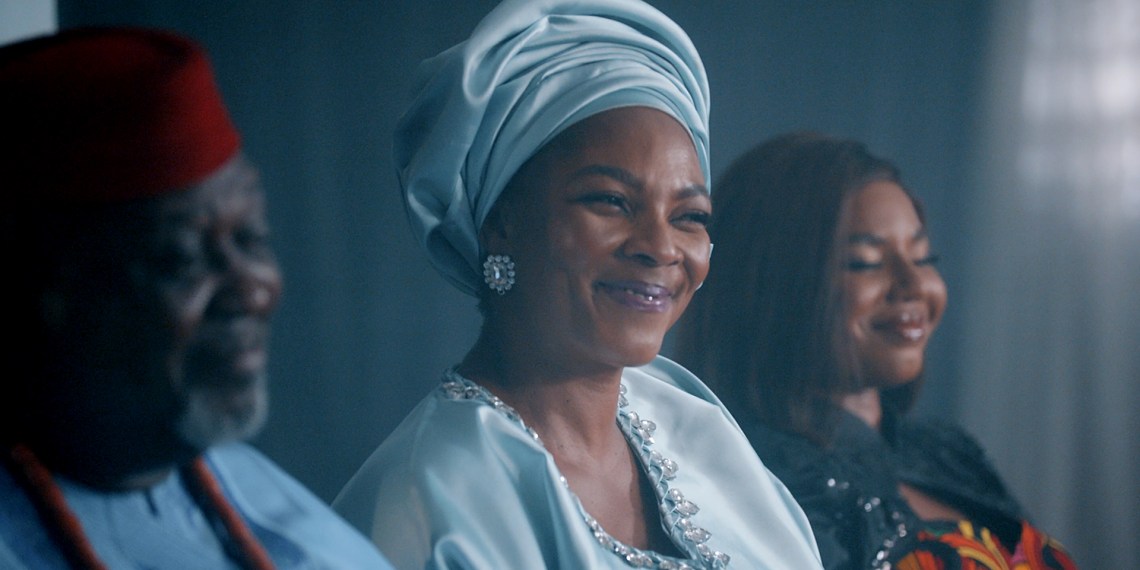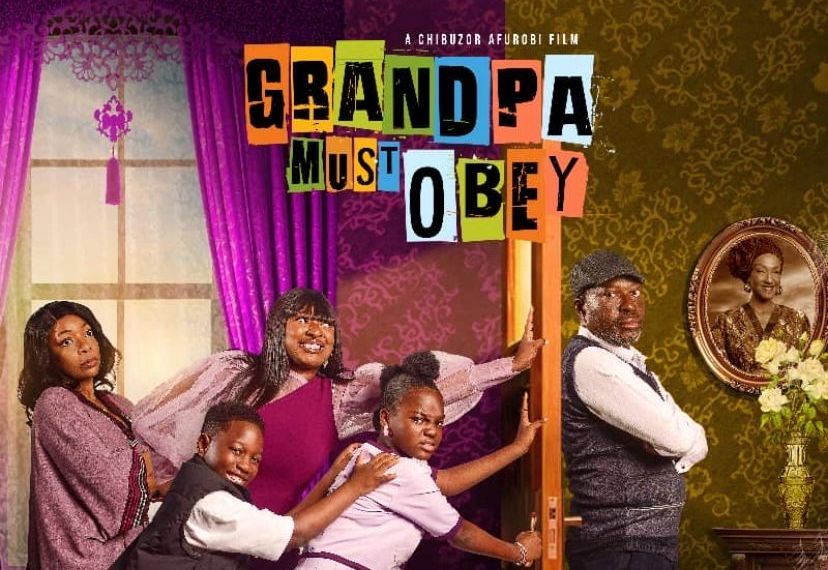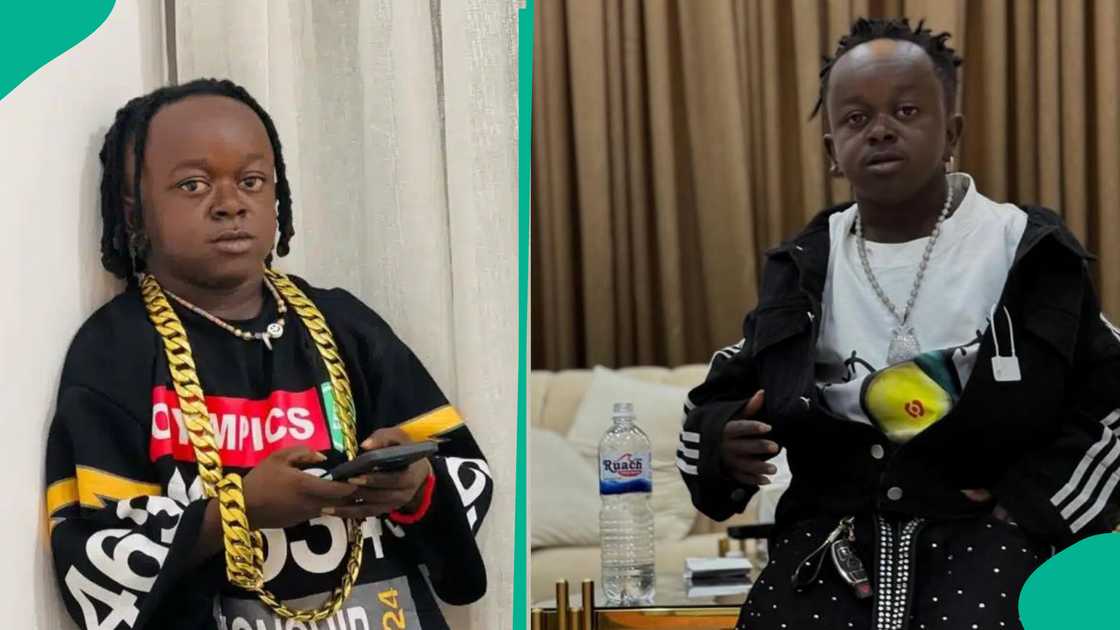With an ensemble cast featuring some of Nollywood and West Africa’s familiar faces—Nse Ikpe-Etim, James Gardiner, Erica Nlewedim, Nancy Isime, Padita Agu, Mercy Aigbe, Caroline Hutchings Danjuma, Yemi Blaq, Tina Mba, Akin Lewis, Joshephine Ewor, Atlanta Bridget, Tayo Faniran, Dil Ajufo, Yomi Black, Moet Abebe, Constance Owoyemi, May Owen, and Jessica Iroajanma—“The Devil is a Liar” stands as an ambitious addition to the region’s cinematic landscape. Helmed by veteran director Moses Inwang, the film unfolds over a sprawling 137 minutes, weaving a tale of family bonds, ambition, betrayal, and the shadows that sometimes linger beneath glossy surfaces.
At the heart of the movie is Adora, played with emotional depth by Nse Ikpe-Etim. As the eldest of three sisters—Beatrice (Padita Agu) and Cheta (Nancy Isime)—Adora’s life is shaped early by the loss of her mother. Raised by her father and stepmother, alongside two half-sisters, her path is set largely by the expectations and judgments of her family and community, a theme that resonates for many Nigerians, especially women under pressure to “settle down.”
Adora faces daily jibes about her unmarried status, especially when Beatrice finds her match and Cheta prepares for her introduction ceremony—an important nuptial step in many West African cultures. But her fortunes appear to change when she encounters Jaiye, a charismatic stylist, at Cheta’s introduction.
A romance kindles swiftly. The couple’s age gap—Adora is eight years older—is a source of whispered skepticism, but Jaiye’s attentive courtship and eagerness to integrate with her family seem to silence critics. Against the backdrop of friends and relatives, they wed after a brief courtship, each carrying their own dreams into marriage.
Jaiye, who claims to be his parents’ only child orphaned in his teens, presents himself as an entrepreneur, running a promising fashion outfit alongside his cousin Anna (Erica Nlewedim). His narrative—a self-reliant young man building a business in a competitive, Lagos-driven industry—mirrors the aspirations of many urban Nigerians facing similar odds. Adora’s own sense of urgency to have children pushes her to invest not only hope but money into their union and Jaiye’s runway showcase. When she discovers she is pregnant, it feels like a hardwon victory after years of anxiety and external pressure.
Yet as Adora and Jaiye embark on married life, cracks begin to show. Their priorities collide: while Adora’s biological clock ticks, Jaiye claims business must come first—a conflict familiar to numerous modern couples balancing tradition, ambition, and the pressures of fertility in a society where motherhood remains a revered milestone.
Adora’s financial contributions to Jaiye’s fashion enterprise reflect a broader trend in West African urban centers—women stepping into the role of providers and active supporters for their partners. Yet, these contributions become a source of tension rather than unity. When Adora becomes pregnant a second time, Jaiye’s reaction takes a harsh turn: he allegedly demands that she terminate the pregnancy or risk the end of their marriage. The situation spirals, culminating in a maelstrom of infidelity, a mysterious medical procedure, a jail sentence, and the looming fear of double jeopardy.
The movie’s plot accelerates with a series of dramatic twists, but its ambitious narrative draws mixed reactions. According to film enthusiast Ifeanyi Okeke, who watched the premiere in Lagos, “The performances were solid, but the plot tried to juggle too much. At times, it was hard to believe some of the turns.” This sentiment echoes among many who expected more subtlety, especially given the all-star cast.
A pivotal moment arrives when Adora, after receiving an anonymous message revealing Jaiye’s alleged infidelity, tracks him down and—driven by rage—runs him over with her car. Jaiye’s subsequent passing intensifies the narrative, but also veers toward predictability—a pattern cited in some Nollywood dramas, where the “dashing but deceptive man” trope remains prevalent. “The real surprise,” says critic Tega Bassey, “would have been if Jaiye actually stood by her. That would have broken Nollywood stereotypes.”
Despite its impressive cast and ambitious premise, “The Devil is a Liar” has its shortcomings. At 137 minutes, the film reportedly suffers from pacing issues and extraneous scenes that dilute its emotional core. Many viewers express confusion over certain plot elements, such as Jaiye’s supposed death in India and subsequent open return to Nigeria. How does someone with international business ties, pronounced dead abroad, so easily slip back into Lagos society? Such questions, highlighted by Abuja-based culture journalist Chika Ogudu, “make the viewer pause—this isn’t just dramatic license, it verges on the implausible.”
Perhaps most controversial is the subplot involving Dr. Bala (Yomi Black), a medical professional who reportedly performs a hysterectomy on Adora without her consent and then vanishes abroad to live lavishly. This twist introduces serious concerns about medical malpractice and regulatory loopholes—issues with real-world relevance in Nigeria’s health sector. Experts stress the importance of informed consent in all surgical procedures, and the Nigerian Medical Association has frequently called for stiffer punishments for violators. Though the film’s depiction might be exaggerated for dramatic effect, the underlying issue—patients’ rights and the accountability of rogue practitioners—remains topical, especially given recent headlines about medical errors in parts of West Africa.
On a broader scale, “The Devil is a Liar” draws viewer attention to the phenomenon of white-collar crime—specifically, the idea that individuals might seek treatment overseas and use the opportunity to fake their deaths and begin anew. This plotline, while sensationalized, echoes reported cases of insurance fraud and identity change—both in Nigeria and globally. According to Lagos-based lawyer Sola Adebiyi, “The movie’s reference to this type of crime provides a rare window into the kinds of fraud that occur in our society, even if the details aren’t always realistic.”
For all its flaws, the film succeeds in showcasing the skill and presence of its actors. The star power keeps the audience engaged even when the script falters. “The main draw was seeing so many of our favourite faces together in one film,” said Tessy Uzo, a Nollywood fan from Port Harcourt. “Everyone brought their best, even when the story didn’t always make sense.”
Still, “The Devil is a Liar” invites viewers to reflect on deeper issues facing contemporary Nigerian families: generational differences, the tension between personal ambition and societal expectations, and the impact of secrets left to fester within families. The film attempts to balance entertainment with social commentary, offering a lens on Nigerian middle-class anxieties—even if the storytelling sometimes overreaches.
The average rating among critics and viewers is a balanced 5 out of 10—a reflection of high hopes, strong acting, but an uneven narrative arc.
As Nollywood continues to expand its reach across Africa and the diaspora, “The Devil is a Liar” demonstrates both the potential and the pitfalls of ambitious filmmaking in the region. It sparks vital questions about the stories we tell about ourselves, the expectations placed upon women and families, and the evolving realities of love, ambition, and betrayal in contemporary West Africa.
What do you think about the portrayal of family pressures and ambition in Nollywood films? Have you experienced or witnessed similar challenges in your community? Drop your thoughts in the comments and follow us for the latest in African entertainment news!
We want to hear from you!
Have a story you want to share or sell? We’d love to hear from you! Email us at story@nowahalazone.com to get your story featured or discuss story sales.
For general support, reach out at support@nowahalazone.com.
Join the conversation on Facebook, X (Twitter), and Instagram for more entertainment updates, exclusive interviews, and in-depth Nollywood analysis!










